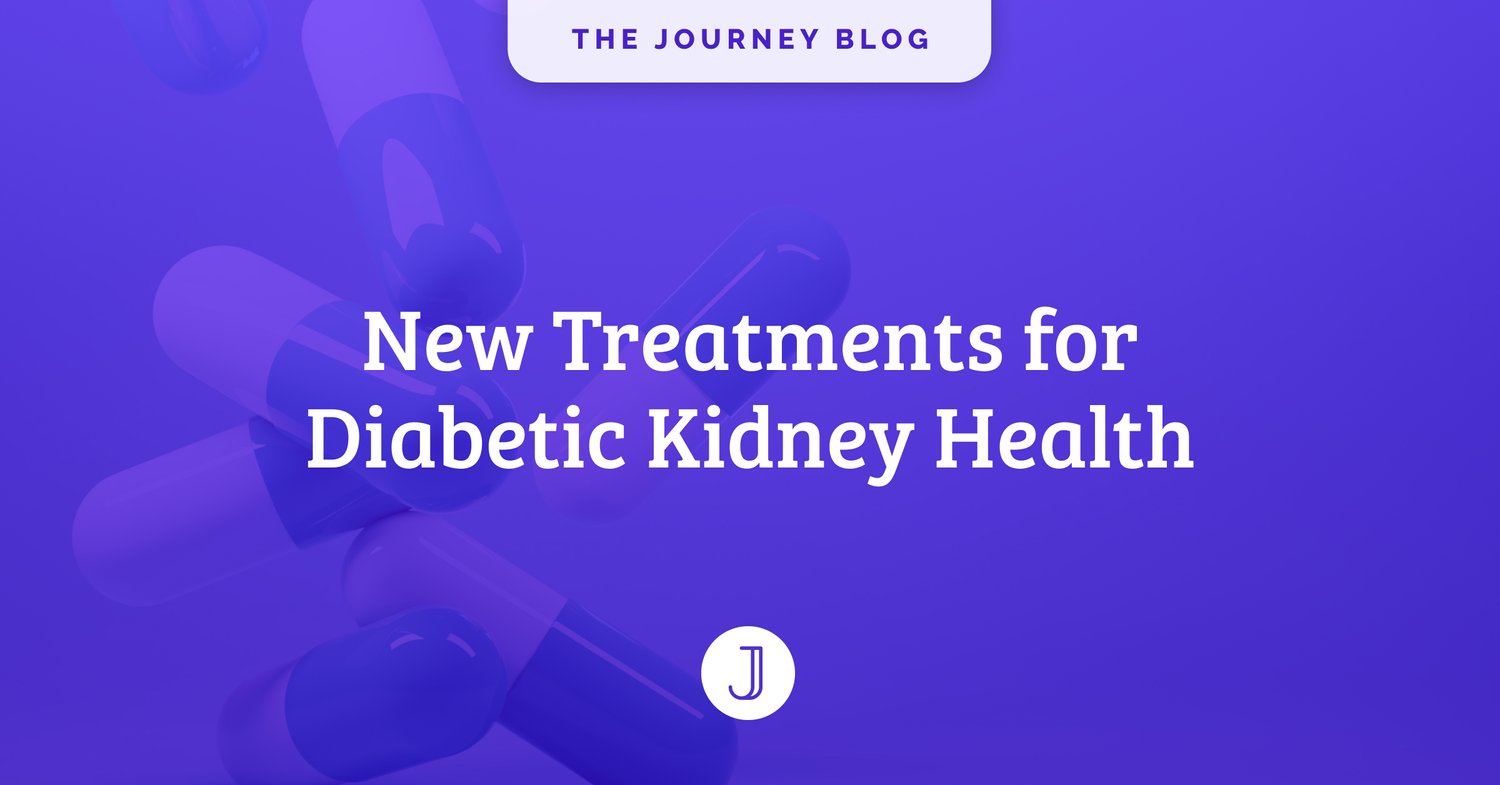ADA 2022 Kidney Disease News Roundup
CKD Risk Management Added to Standards of Care
A new section (Section 11) focused specifically on kidney health in diabetes has been added to the Standards of Care guidelines. Although this section was first released at the beginning of the year, the ADA took the opportunity to formally announce it in the days leading up to the 82nd Scientific Sessions, highlighting its potential impact and generating interest.
Section 11 focuses both on the prevention and treatment of chronic kidney disease (CKD) in diabetes.
It lists specific guidelines for annual screening of kidney function, as well as the diagnosis and treatment of kidney issues. These guidelines go beyond the established practices of managing glycemic levels to meet specific targets. They now include the use of SGLT2 (sodium-glucose cotransporter-2) inhibitors and MRAs (nonsteroidal mineralocorticoid receptor antagonists), a.k.a, finerenone — both as preventative and therapeutic measures.
Improved Therapeutic Options for Kidney Health in Diabetes
With as many as 40% of people with diabetes affected by kidney disease, any improvements to preventative care stands to dramatically improve the outlook for kidney health in diabetes.
The addition of SGLT2 inhibitors and MRAs, with their ability to protect kidney (and cardiovascular) function along with bringing down glucose levels, was talked about in glowing terms.
There were hints that more therapeutic options are on the horizon. Using the available therapeutics in combination looks like it can yield better results for some people. And additional classes of therapeutics, GLP-1 (glucagon-like peptide-1) receptor agonists in particular, are being examined for their impact on kidney health and function.
As more and more therapeutic options are recognized and become available, the personalization of treatment called for with precision medicine becomes closer within reach.
VIDEO - Dr. Neda Rasouli, MD of UC Health, Anschutz Medical Campus sums up therapeutic developments in chronic kidney disease, cardiovascular health, and obesity presented at ADA 2022. She also touches on how these developments support movement towards precision medicine in diabetes care. Source: ADA TV
Dramatic Results for Tirzepatide
Less than a month after receiving its FDA approval as a treatment for type 2 diabetes, tirzepatide received a lot of attention at the 82nd Scientific Sessions for its impacts that go beyond lowering blood glucose levels.
Study results reported an astounding 9-out-of-10 people with obesity lost weight while taking tirzepatide regardless of whether diabetes or prediabetes was present. The resulting weight loss and maintenance was characterized as yielding results similar to bariatric surgery. However, 78.9% to 81.8% of those receiving tirzepatide reported at least 1 adverse event, these were most commonly gastrointestinal in nature.
With tirzepatide, a dual GIP/GLP-1 receptor agonist, researchers also observed measurable improvements in tirzepatide users' whole cardiometabolic profile. This was measured as blood pressure, lipids, and/or aminotransferases of liver health.
An analysis of study data showed tirzepatide use apparently reduced the risk of new-onset of macroalbuminuria (an early symptom of kidney disease) by nearly 60% compared to using insulin glargine. What’s more, tirzepatide demonstrated a 41% reduction in progression of CKD compared against using insulin glargine. This reduced progression was measured as declines in eGFR, renal death rates, and progression to end stage renal disease (ESRD).
At Journey Biosciences, we are excited to see a focus on kidney health during the preeminent clinical diabetes conference. Elliott Joslin once said, the person with diabetes with the most information, lives the longest and we believe this to be true. People with diabetes and their health care professionals, when armed with personalized, actionable information from NaviDKD and access to new treatments and therapeutics such as these are a powerful weapon against diabetic kidney disease progression.
About Journey Biosciences
Journey Biosciences is on a mission to improve the lives of people with diabetes through proactive, personalized care. One in three people with diabetes faces the hidden threat of kidney disease. Our flagship solution, NaviDKD®, is an innovative blood test that identifies this risk years in advance, enabling personalized preventive care for better health outcomes. By empowering early action, we aim to significantly reduce the burden of diabetes-related kidney disease on patients and healthcare systems. Discover more at journeybio.life.
For media inquiries: media@journeybio.life



